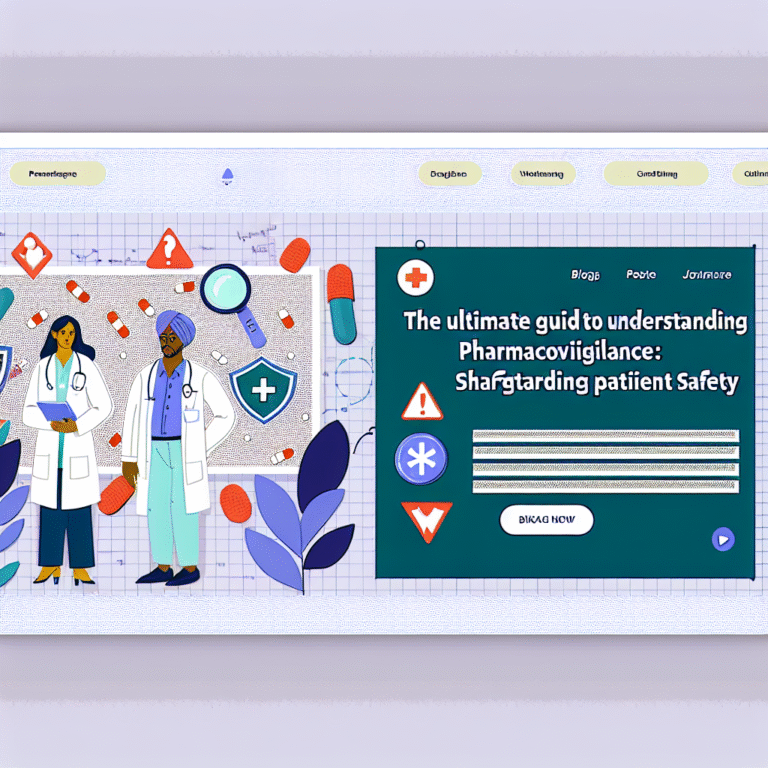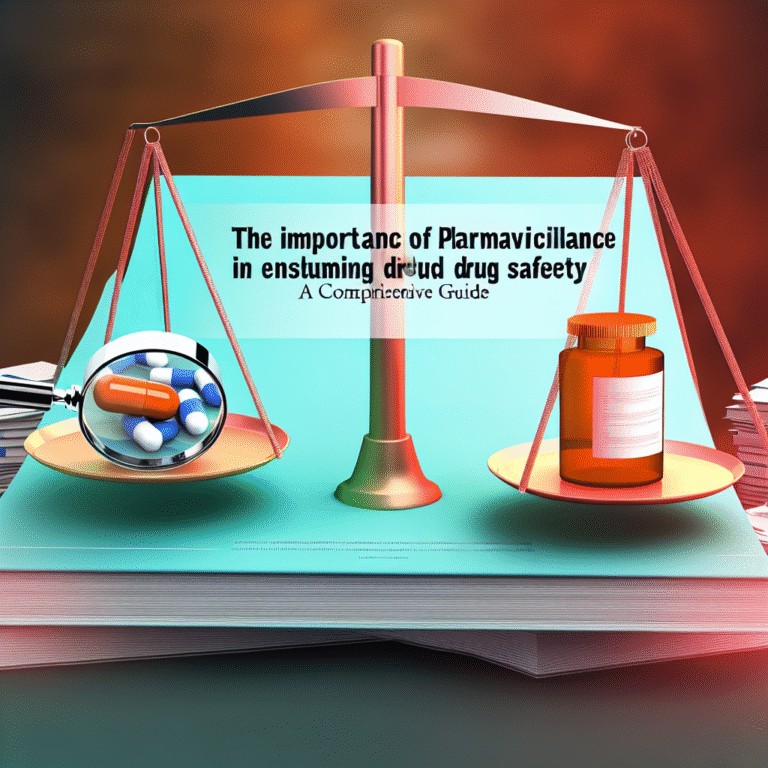How to Launch a Successful Career in Pharmacovigilance: Essential Skills and Online Training Programs
How to Start a Great Career in Pharmacovigilance: Must-Have Skills and Online Training
Introduction
Pharmacovigilance is a really important area in healthcare. It helps make sure medicines are safe and work well. People who work in pharmacovigilance keep an eye on how medicines affect people and stop any bad reactions. Because the world of medicine is getting more complex, there is a bigger need for skilled people in pharmacovigilance. This makes it a fantastic and meaningful job choice. In this blog, we’ll talk about the key skills you need for a career in pharmacovigilance and the online training programs that can help you get started.
Understanding Pharmacovigilance
Pharmacovigilance is the science of finding, studying, understanding, and stopping side effects or other problems from medicines. It’s all about keeping patients safe and making sure the good outcomes from medicines are more than the bad ones. People working in this area gather and analyze data on bad reactions to drugs, which makes using medicines safer.
There is a high demand for pharmacovigilance experts because the drug industry is growing and there are strict rules about safety. This means there are lots of job openings, from starting positions to high-level roles in both private and public organizations.
Essential Skills for a Great Career in Pharmacovigilance
Understanding Science and Medicine
To do well in pharmacovigilance, you need to know a lot about medicine and how drugs are made. You also need to understand the rules that keep drugs safe.
Being Good at Analyzing Information
You need to be good at understanding data and figuring out complicated information from different places.
Paying Attention to Details
Being correct is very important, especially when writing reports. You need to spot safety problems quickly.
Knowing the Rules
You should know the global rules about pharmacovigilance and be aware of the requirements for reporting bad drug reactions.
Communicating Well
You have to be good at explaining things to different people, so you need to be good at both writing and speaking.
Solving Problems
You need to come up with answers for new safety problems and be good at making decisions and managing risks.
Being Tech-Savvy
You need to know how to use software and databases for managing data and understand systems for pharmacovigilance reporting.
Managing Projects
Handling pharmacovigilance tasks and timelines with teams from different areas is really important.
Always Learning
Keeping up with new industry trends and continuing to learn is key to getting better in your career.
Being Ethical
You must always keep patient safety first and handle sensitive information with honesty.
Exploring Online Training Programs
Learning About Online Training in Pharmacovigilance
Online training programs are great for those wanting to get into pharmacovigilance. They offer flexibility, are easy to access, and let you focus on your career goals. These courses can really help your job chances by giving you the knowledge and skills needed in this field.
Top Online Training Programs
Many schools and professional groups offer detailed online courses. Some good programs include the Drug Safety and Pharmacovigilance Certification from the University of California, San Diego, and the Advanced Pharmacovigilance Program from DIA.
Getting Special Certifications
Some key certifications that help in a pharmacovigilance career are the Pharmaceutical Medicine Certification and the Qualified Person for Pharmacovigilance (QPPV). These certifications show you’re dedicated and knowledgeable in the field.
Picking the Right Program
When choosing online courses, think about the program’s reputation, its connection to your career goals, how experienced the instructors are, and what past students have said. Make sure the course matches the skills you want to learn.
Flexible Learning Options
Online programs usually offer self-paced and guided learning options. Pick the one that fits your lifestyle and commitments, so you can balance study and work well.
Opportunities to Connect with Others
Talking with peers and experts through online forums can give you great insights and chances to network. Social media and networks like LinkedIn are great for meeting industry professionals.
Career Paths and Opportunities
Starting Positions
When you begin a career in pharmacovigilance, you usually start as a Drug Safety Associate or a Pharmacovigilance Specialist. These jobs involve entering data, managing cases, and reporting.
Middle and Higher-Level Roles
With more experience and extra qualifications, you can move up to become a Pharmacovigilance Manager, Risk Management Specialist, or Safety Scientist.
Opportunities Across Industries
Beyond working with medicines, skills from pharmacovigilance can be used in areas like healthcare consulting, regulatory affairs, and healthcare policy making.
Conclusion
Starting a career in pharmacovigilance means you can make a big difference in public health and enjoy an exciting and fulfilling job journey. By developing the main skills and using online training programs, you can set yourself up for success in this important field. At Pharmacovigilance Foundations, we are here to help budding professionals with resources to guide and excel in your career path.






